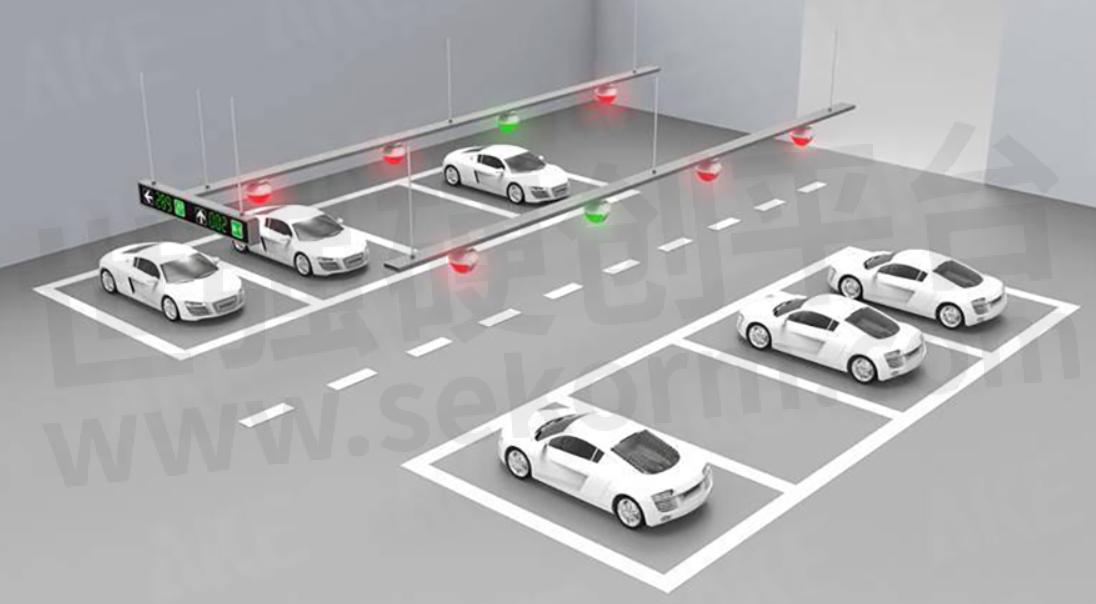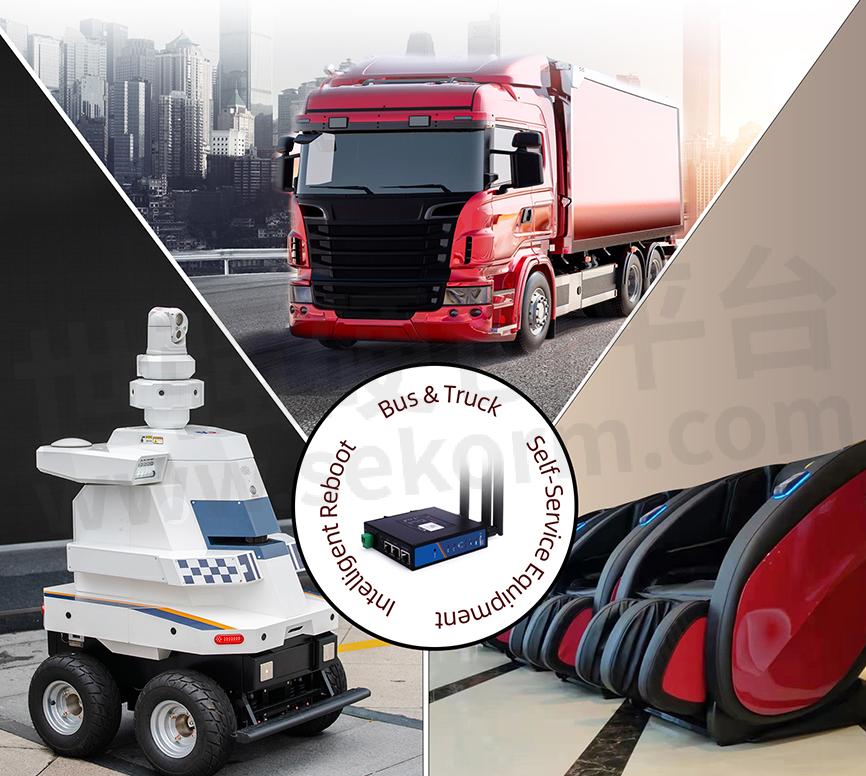What is the Difference between Router Gigabit and 5G

The application of a 4G cellular router to the intelligent management of parking lot airspace can bring many benefits. The following are the main applications:
Real-time monitoring and video security: 4G cellular router communication transmits the real-time video collected by the parking lot camera and monitoring equipment to the cloud or monitoring center. In this way, parking lot managers can monitor the actual situation of the parking lot remotely at any time, find abnormal conditions in time, such as illegal parking, violations, or safety problems, and make corresponding responses and treatment.
Real-time update of parking space information: A 4G cellular router is connected to the parking space detection system in the parking lot, which can receive and upload parking space information in real time. By using technology such as sensors, the occupancy of each parking space can be accurately monitored and the information can be fed back to managers or parking guidance screens. In this way, drivers can know the number and location of available parking spaces in real-time, thus saving time and fuel and finding parking spaces faster during busy hours.
Payment and electronic management: A 4G cellular router can realize the automation and electronic management of the parking fee collection system. When the vehicle enters or leaves the parking lot, the 4G cellular router receives the vehicle identification data and transmits it to the cloud or payment system. Through the combination of license plate recognition, payment and other technologies, electronic collection and reservation parking services can be realized, and manual operation and queuing time can be reduced.
Data analysis and optimization: Through 4G cellular routers, parking lot data analysis and artificial intelligence technology are used to deeply mine information such as traffic and time distribution, so that managers can optimize parking lot operation and plan for the future. For example, according to the analysis results, we can adjust the layout of parking spaces, provide cruise guidance services, and improve route planning, so as to improve the utilization of parking resources and user experience.
The application of a 4G cellular router in the intelligent management of parking lot airspace provides a series of convenience and value-added services such as parking lot manager control, parking space information update, payment, and electronic management. These functions help to improve the operation efficiency, safety, and user satisfaction of the parking lot, and also provide more data support and decision-making basis for parking lot managers, so as to realize the intelligent management of the parking lot.
The 4G cellular router is a router designed specifically for industrial environments. They have special hardware designs and features that allow them to adapt to the harsh conditions of industrial environments and provide reliable wireless network connectivity in these conditions.

Fig.1
Main purpose:
Remote monitoring: A 4G cellular router can monitor the production process of the factory in real-time, so as to analyze the production efficiency, equipment status, etc.
Automatic control: through a 4G cellular router, workers can remotely control the equipment on the production line to realize automatic production.
Data collection and transmission: A 4G cellular router can collect data on the production line and transmit the data to the cloud for analysis through the 4G network.
Other applications: 4G cellular routers can also be used in logistics, transportation, agricultural production, and other industries.
Case of Xingchuang Yilian: a logistics company uses a 4G cellular router to realize logistics monitoring.
How to use it: The company installs the 4G cellular router on the company's freight vehicles and connects GPS devices. When a freight vehicle transports goods, the 4G cellular router obtains the location information of the vehicle in real-time through the GPS device and uploads it to the company's logistics monitoring system. The logistics monitoring system monitors the status of freight vehicles in real-time through the 4G network, such as speed, route, cargo status, etc. In this way, the company can monitor the transportation status of freight vehicles in real-time and better manage logistics distribution.
The 4G cellular router can be used in several industries, including:
Industrial: 4G cellular routers are often used in factory environments for applications such as remote monitoring, automation control, and data acquisition and transmission.
Agriculture: The agriculture-grade 4G cellular router can be used for agricultural production, such as monitoring the condition of field crops and realizing farmland irrigation.
Logistics: The logistics-grade 4G cellular router can be used in logistics transportation to monitor the status of goods in real time.
Construction: The construction-grade 4G cellular router can be used in the construction site to realize remote monitoring and reporting.
Retail: The retail-grade 4G cellular router can be used in retail environments such as shopping malls and supermarkets to realize inventory management and customer consumption analysis.

Fig.2
What is the difference between router gigabit and 5g?
Transmission rate: The maximum transmission rate of the gigabit router is 1Gbps, while the maximum transmission rate of the 5g cellular router can reach 5Gbps or higher.
Frequency bands: Gigabit routers use the 2.4GHz and 5GHz bands, while 5g cellular routers use the high-frequency 5GHz and mmWave bands.
Coverage: The signal coverage of gigabit routers is generally smaller, while the signal coverage of 5g cellular routers is larger because the signal transmission distance of the 5G band is longer.
Latency: Gigabit routers generally have higher latency, while 5g cellular routers have lower latency, which is important for applications that require real-time response.
Cost: Gigabit routers typically cost less, while 5g cellular routers cost more because they require more advanced technology and more components.
5g cellular routers are faster and more stable than gigabit routers, but they also cost more. Gigabit routers are ideal for environments such as most homes and small offices, while 5g cellular routers are ideal for high-density environments that require faster, more stable network connections.
- +1 Like
- Add to Favorites
Recommend
- Reasons for Good Wall Penetration Performance of 5G Cellular Routers
- Seven Core Performances of 5G Cellular Routers
- How to Implement Peer to Peer Communication in 5G Cellular Routers
- The Role that 5g Cellular Routers Can Play in Factory Applications
- 5G Cellular Routers Empowering the Development of Autonomous Driving Technology
- Differences Between NSA and SA Networking Modes of 5G Cellular Routers
- How Can 5G Cellular Routers Help Enterprises Achieve Digital Transformation?
- What Is the Relationship Between 5G Cellular Routers and 5G Local Area Network Technology
This document is provided by Sekorm Platform for VIP exclusive service. The copyright is owned by Sekorm. Without authorization, any medias, websites or individual are not allowed to reprint. When authorizing the reprint, the link of www.sekorm.com must be indicated.












































































































































































































































































































































































































































































































































































































































































































































































































































































































































